Affiliate links on Android Authority may earn us a commission. Learn more.
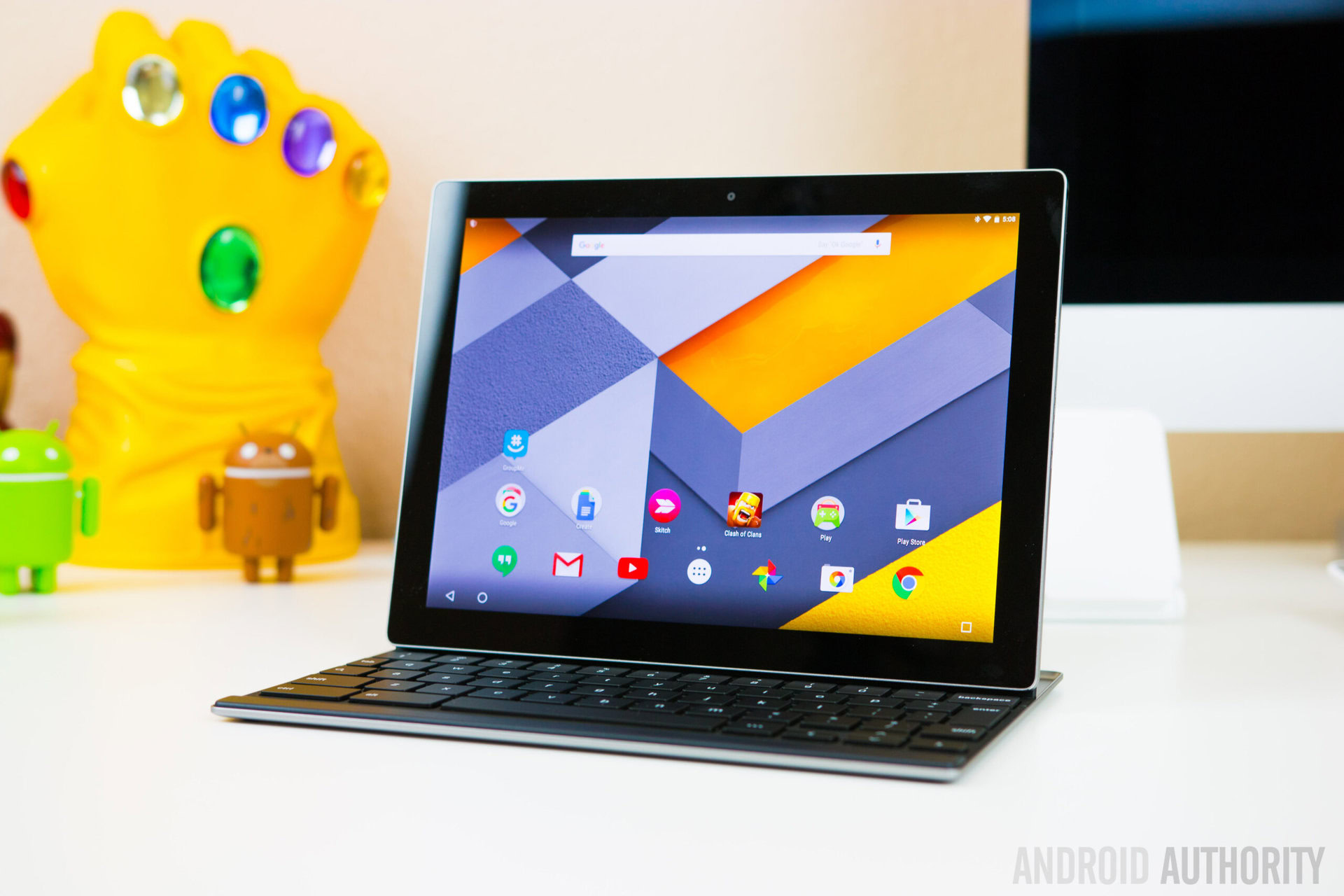
Google Pixel C review
Published onDecember 21, 2015
Google Pixel C
What we like
What we don't like
Our scores
Google Pixel C
Along with the new Nexus smartphones, Google announced the latest addition to their tablet portfolio in late September. However, in a rather surprising move, this tablet doesn’t feature the Nexus branding, but is instead the latest addition to the Pixel series, despite being an Android device.
Confusing nomenclature and differing operating systems aside, the Pixel C, like its laptop counterpart, is being touted as a device designed with productivity in mind. Quite a few tablets this year have targeted this niche, but is this curious device really a viable alternative to your laptop/computer? We find out, in this comprehensive Google Pixel C review!
Design
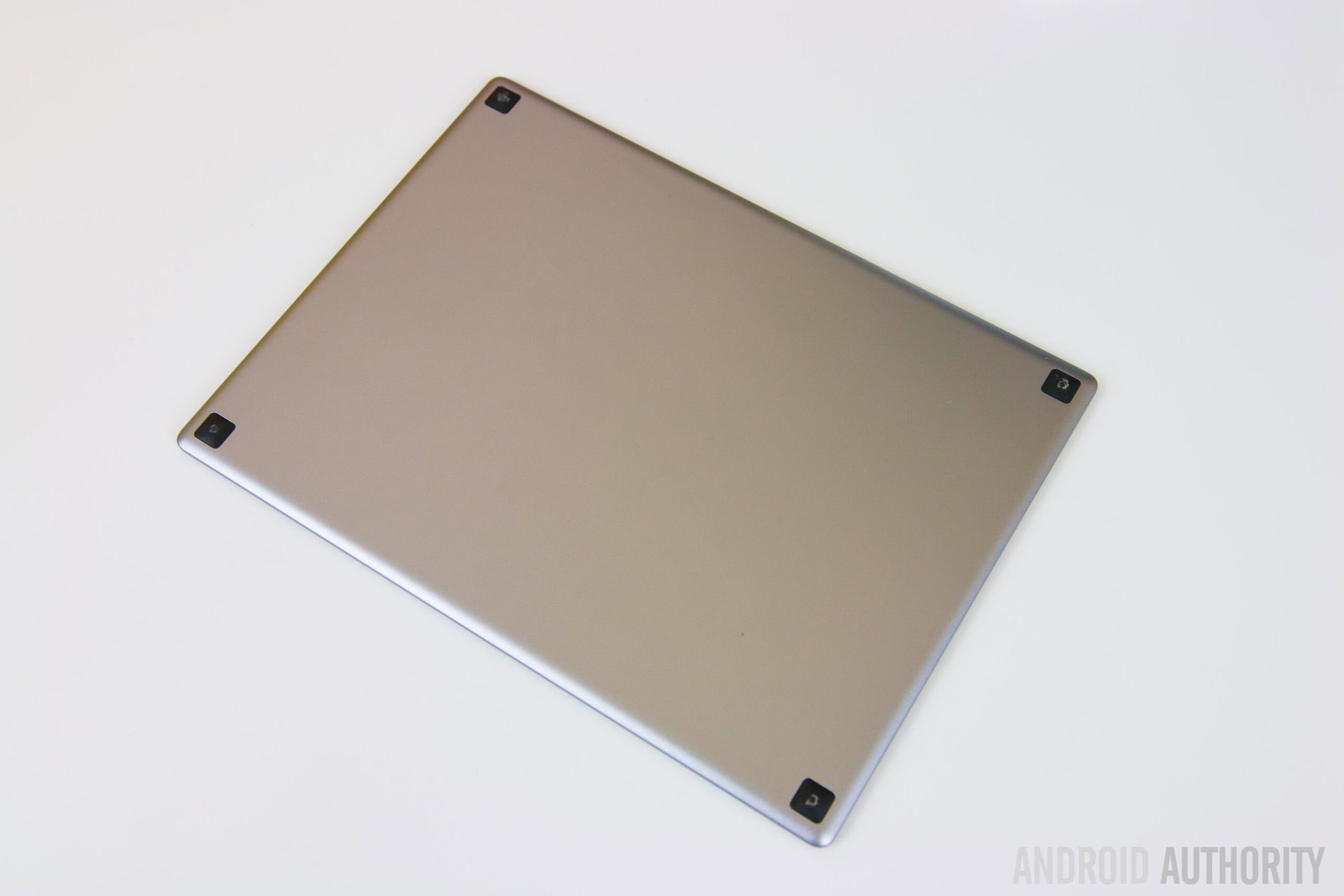
Having been designed by the Pixel team, it isn’t surprising that the Pixel C shares a lot of its design language with its laptop counterpart, and in fact, with the additional keyboard attached to the tablet, the device almost looks like a mini Chromebook Pixel. The tablet features the iconic minimalistic Pixel design language, including the brushed aluminium build, along with the multi-colored light bar on the back. Like with the Chromebook Pixel, this light bar can be used to check to battery status by tapping on it.
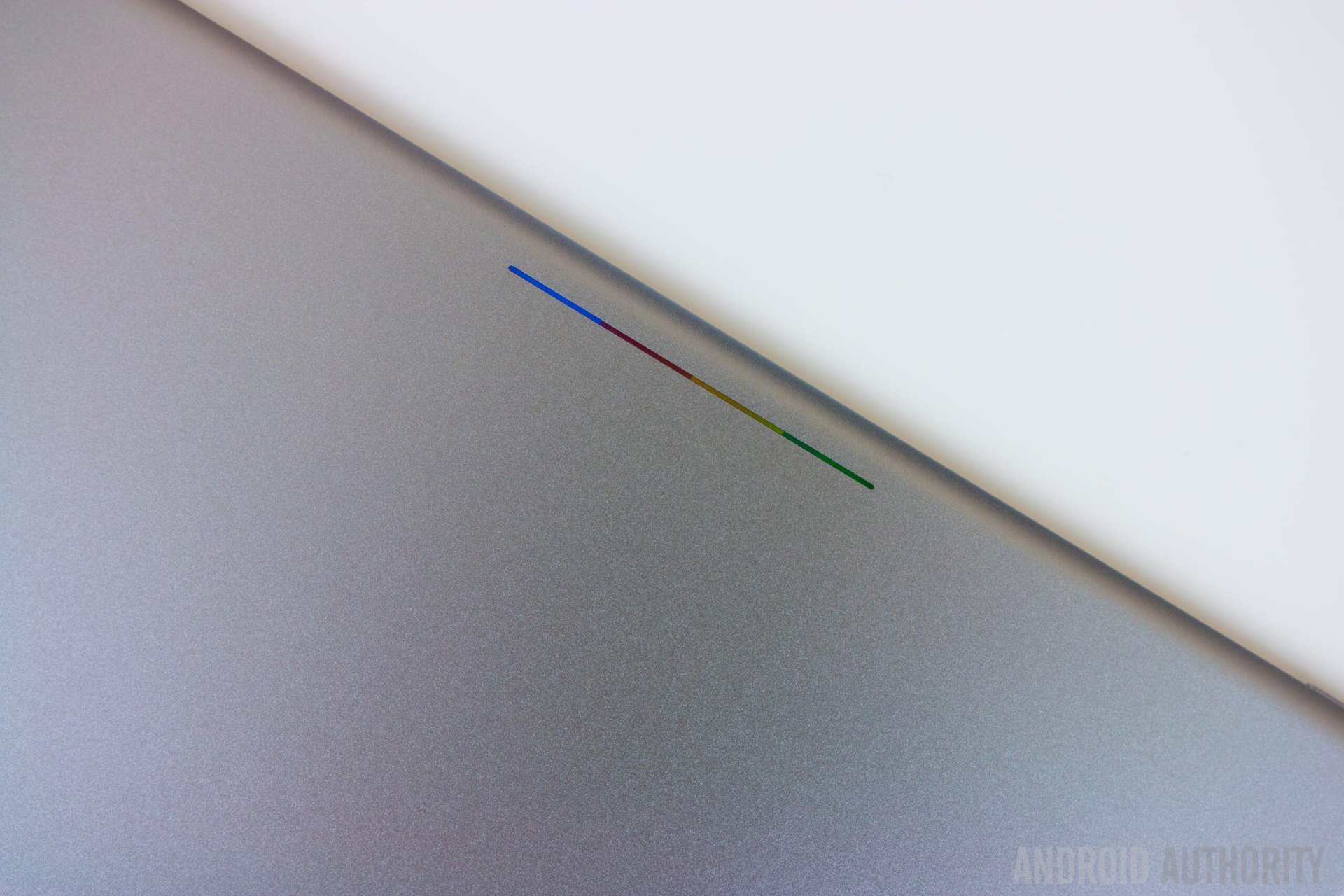
The power button and volume rocker are also made of metal and feel very click-y, and with a good amount of tactile feedback. Dual stereo speakers are found on opposite sides of the tablet, which are beautifully machined into the frame, and the headphone jack is on the upper right side. Like the new Nexus smartphones and the Chromebook Pixel, Google has adopted the latest USB Type-C port for the Pixel C, for syncing and fast charging.
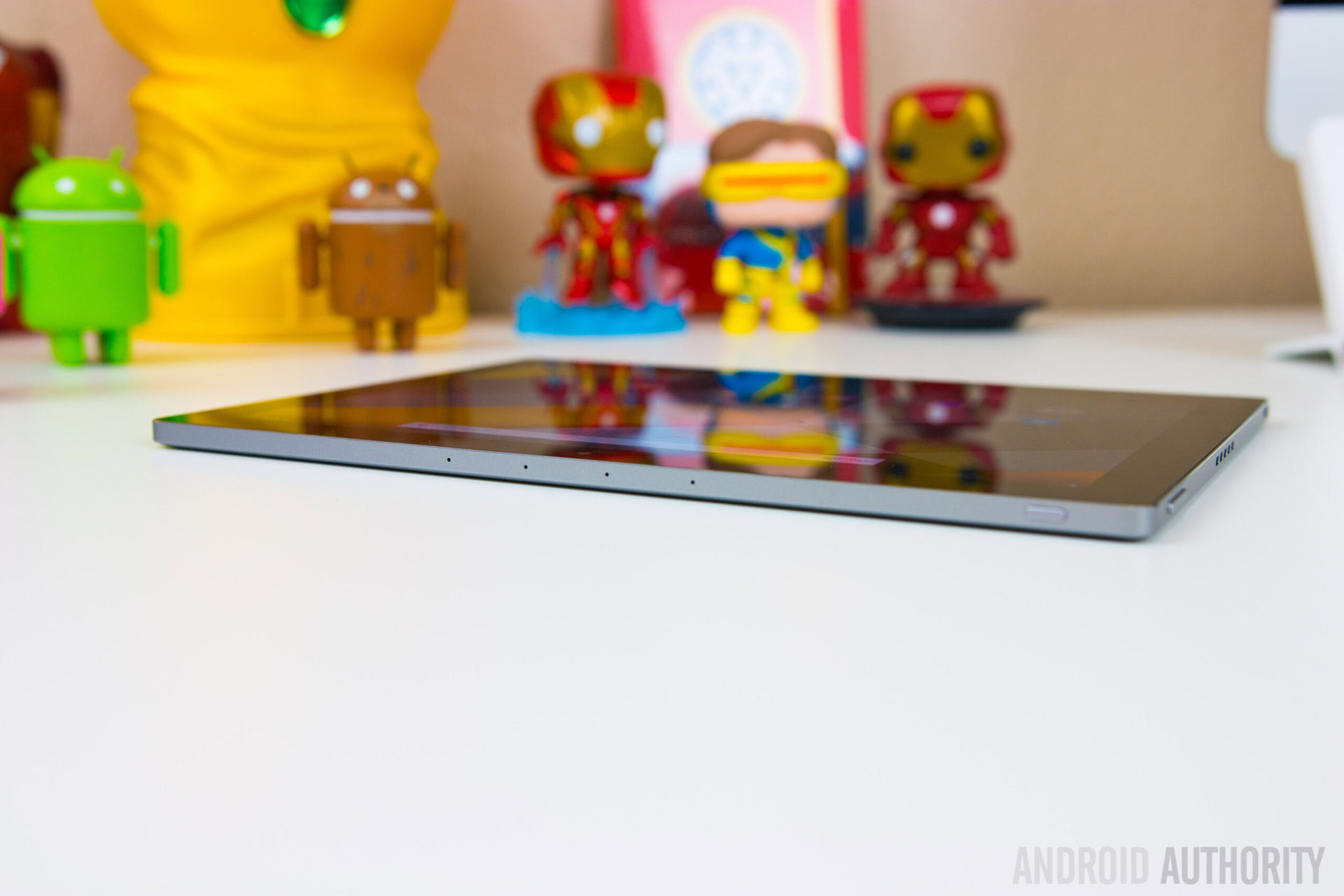
Admittedly, the design of the Pixel C isn’t more than the standard slate form that we are used to, and it may not be the lightest tablet in the world, but its elegant minimalism is what is sure to catch the eye. It also feels absolutely solid, and with every inch of this tablet put together very well, this device certainly screams high quality.
Keyboard
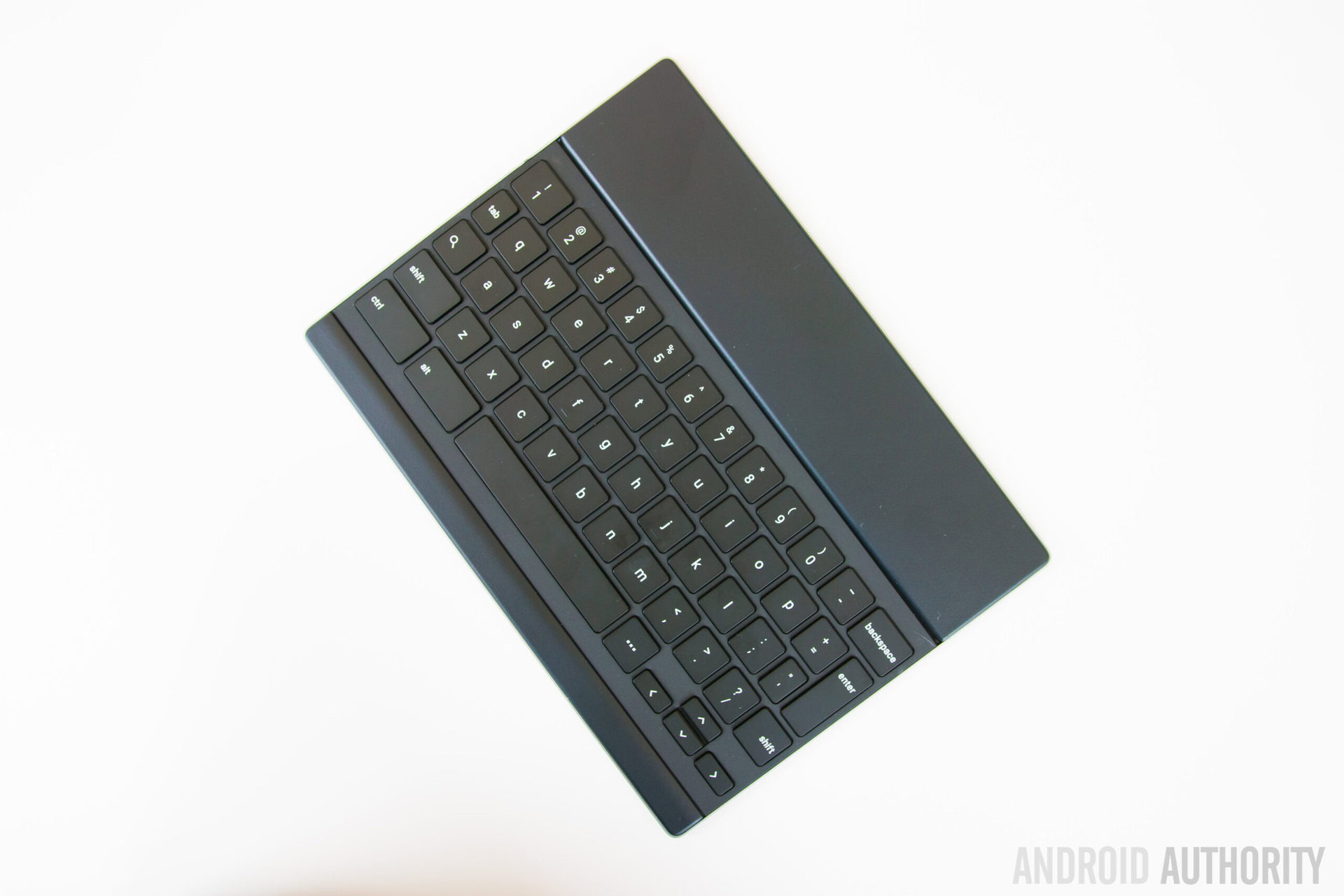
If you’re looking to get the most out of this tablet, it is definitely a good idea to pick up the optional keyboard that is available. The tablet attaches to the keyboard using some very strong magnets, and you can then adjust the “screen” to whatever angle you find ideal. It does not close like a laptop however, and instead, you will have to detach the tablet and place it face down on the keyboard to close it.
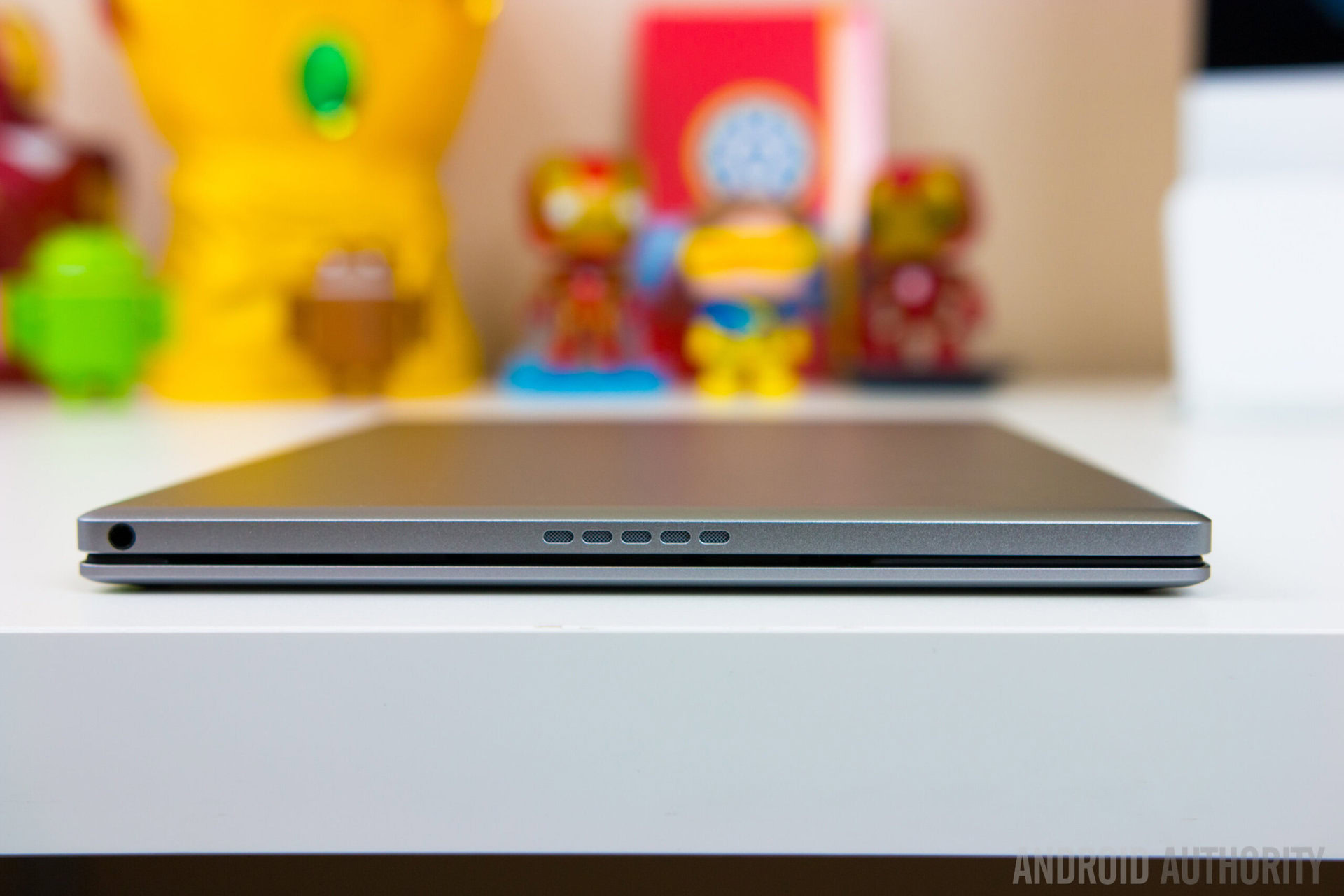
If you want to use the Pixel C as a tablet without detaching the keyboard completely, the keyboard can be hooked onto the back, but this does make the device even heavier and quite thick, resulting in a very cumbersome handling experience if you are planning to continue to use it in this manner for longer than a few minutes.
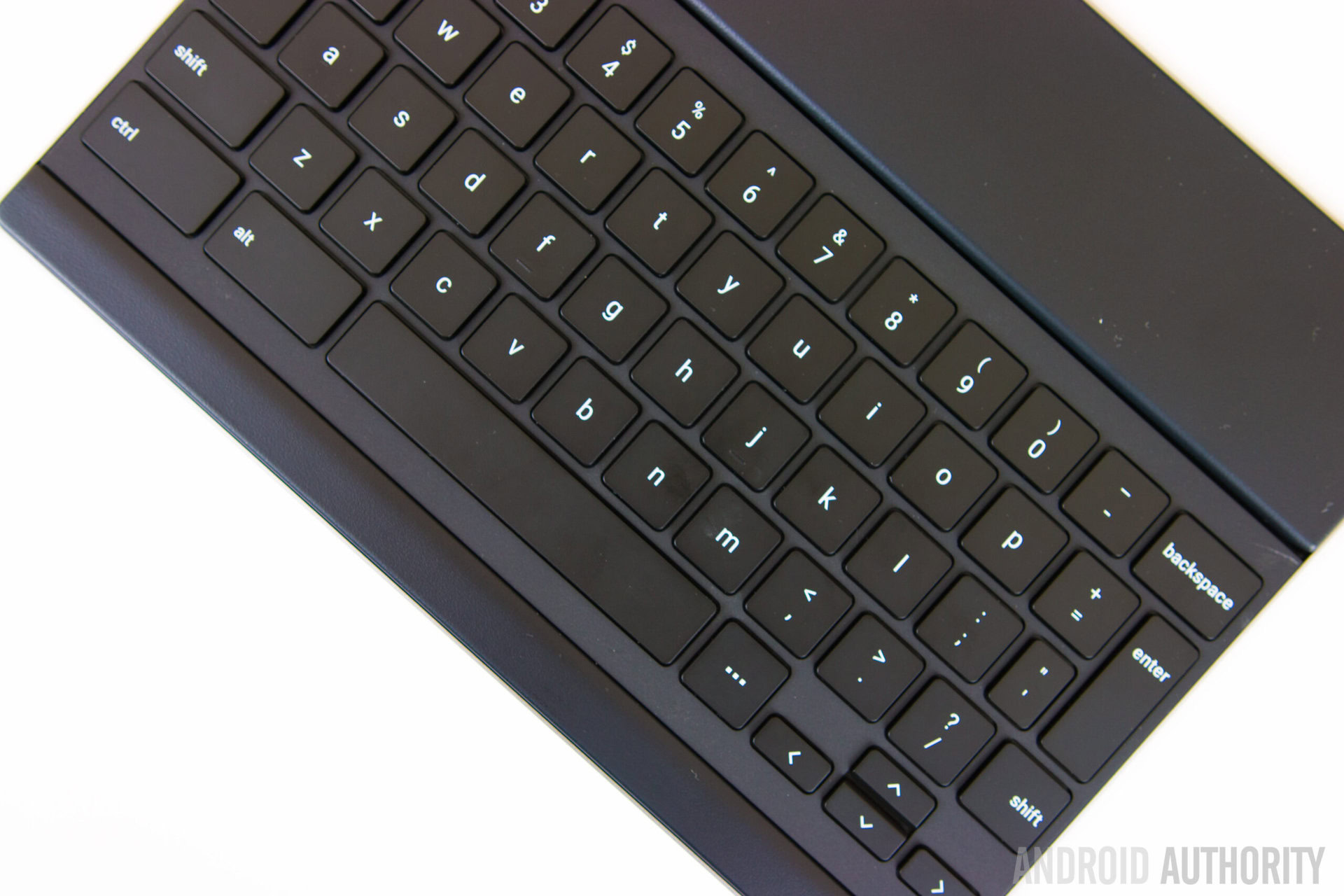
The keyboard may not be full-size, but it is still quite easy to type on. The keys are spacious and with a good amount of travel to them, and there is enough separation between the keys to make them easy to find and identify by feel. Even though the keyboard connects to the tablet via Bluetooth, it can only be used when magnetically attached to the tablet along the hinge, which is great way to ensure there won’t be any accidental or unwanted key strokes. Another nice thing about this keyboard is that it gets its power from the tablet itself, which removes the hassle of carrying around any additional charging cables. The keyboard charges wirelessly when it’s closed in the fashion mentioned above.
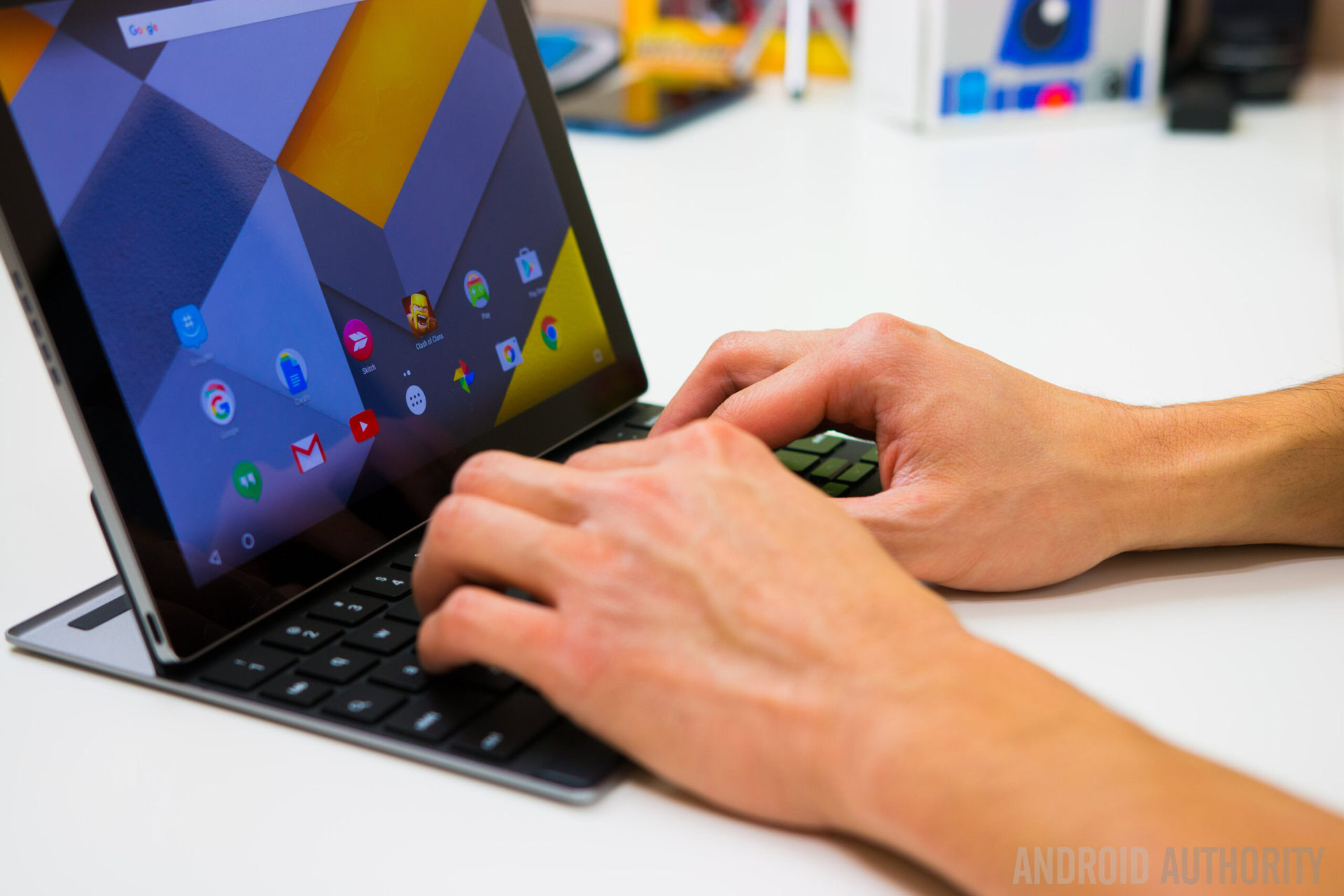
If there is a negative about this keyboard, it is the fact that it’s nothing more than just a keyboard. There aren’t any dedicated Android shortcut keys to be found, and neither is there a trackpad, which means that the majority of your interaction with the tablet is still going to be via touch input. This results in a somewhat disjointed experience, and apart from being able to physically type instead of relying on on-screen keyboards, the keyboard doesn’t provide any extra value or functionality.
Display
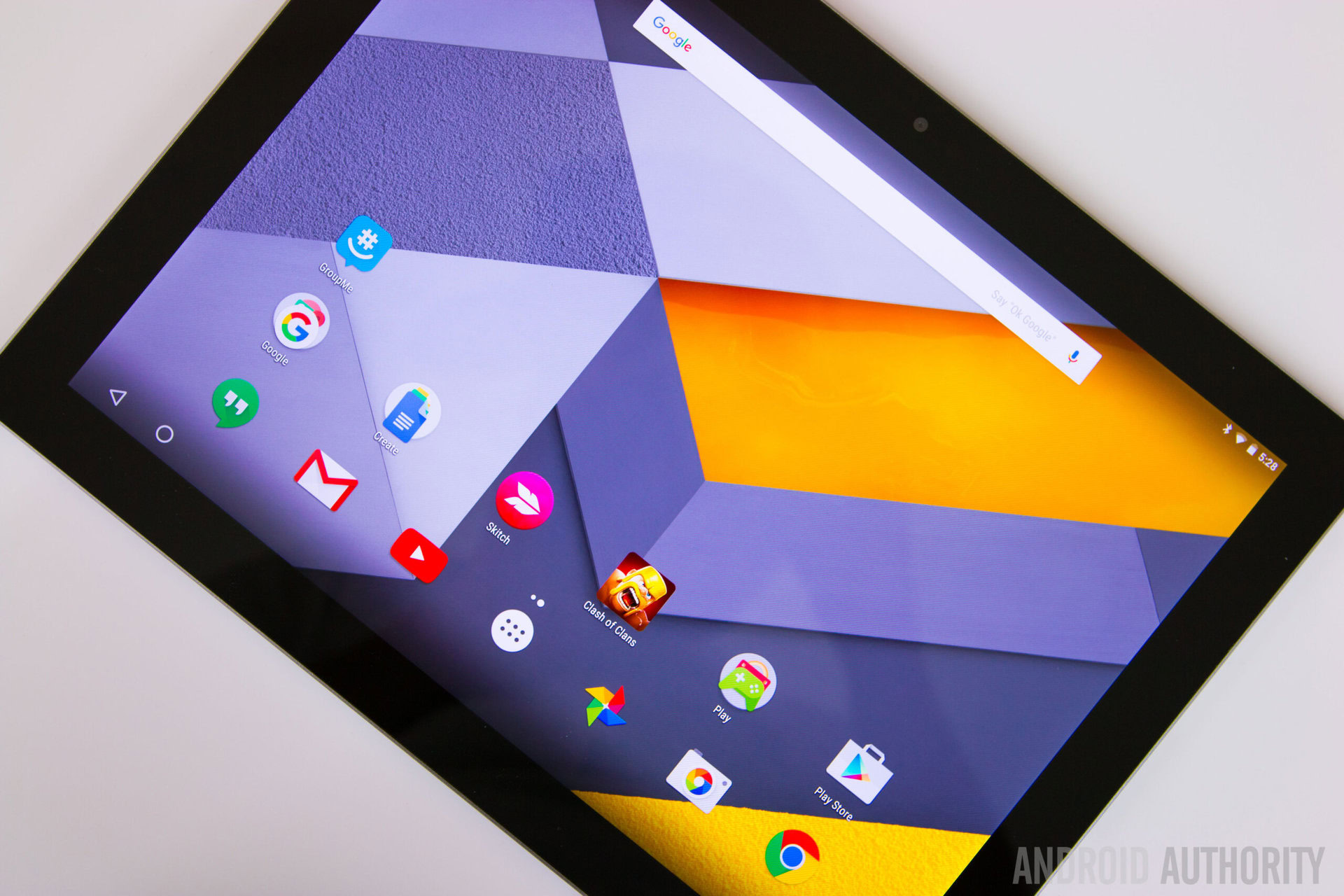
The Pixel C comes with a 10.2-inch IPS LCD display with a 2560 x 1800 resolution, resulting in a pixel density of 308 ppi. As is the case with the rest of the tablet, this display is absolutely top notch and looks fantastic. It is very sharp and easy to read, colors are vibrant and saturated but without being overly so, and it gets bright enough to allow for comfortable outdoor visibility. The large display is perfect for browsing the web, watching videos, and playing games, and with an unusual aspect ratio of 1:√2, you get plenty of width for media-consumption in both the portrait and landscape orientations.
Performance and hardware
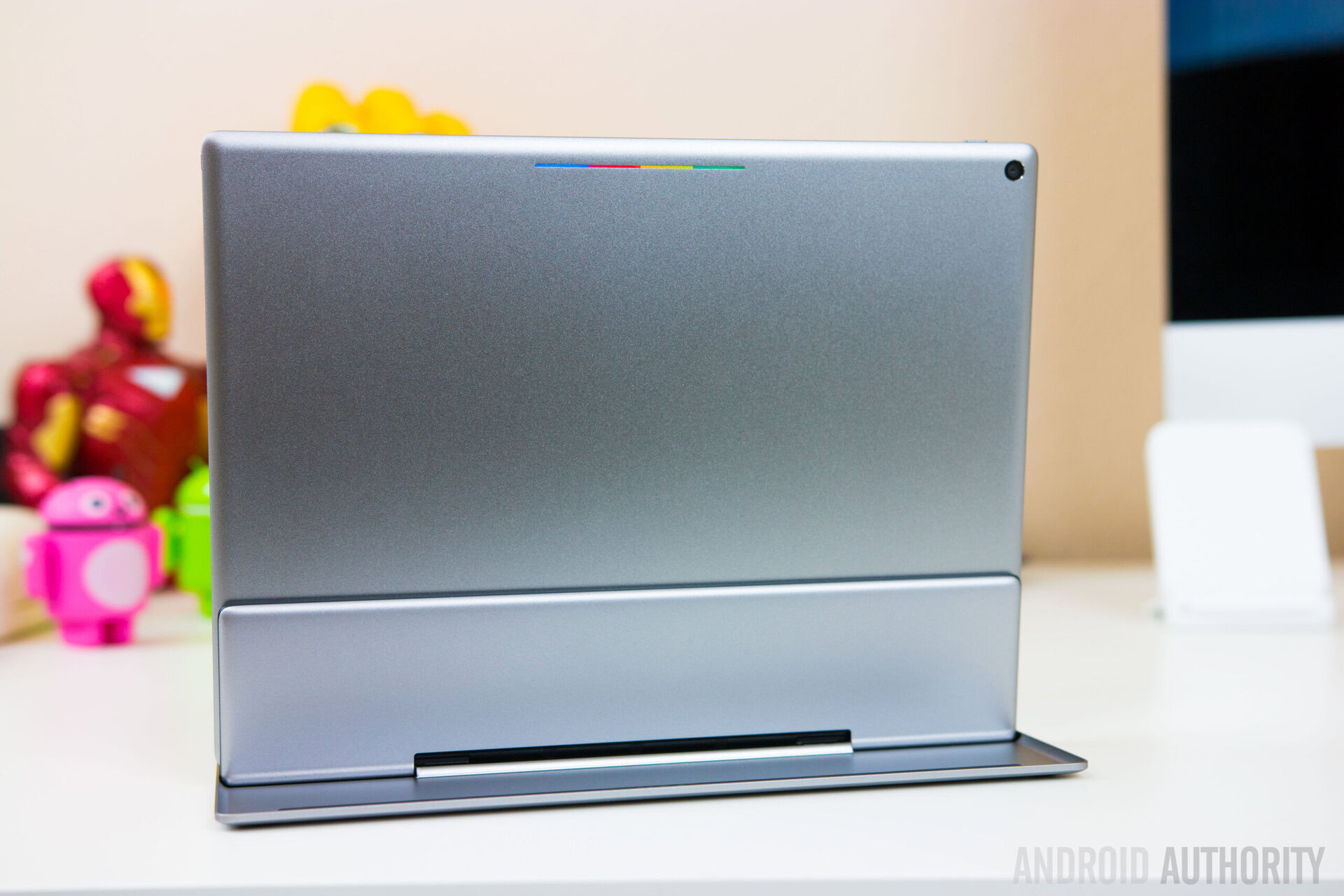
Under the hood, the Pixel C comes with a quad-core NVIDIA Tegra X1 processor, clocked at 1.9 GHz, and backed by the NVIDIA Maxwell GPU and 3 GB of RAM. This processing package provides ample power for any tablet, and even more so in the case of one that is running a stock version of the Android software. Swiping and scrolling through the various elements of the user interface is extremely smooth and snappy, multi-tasking is a breeze, and the device even handles graphically-intensive games very well. The only time there was any indication of a stutter or slow down was unfortunately when using the keyboard. Sometimes, the key presses would lag by several keystrokes, and was an issue that was particularly prominent when using Google Docs.
The Pixel C comes with 32 GB or 64 GB built-in storage options, but with no expandable storage via microSD card possible, users that have storage concerns will have to opt for the higher choice, despite the hefty premium that it warrants.
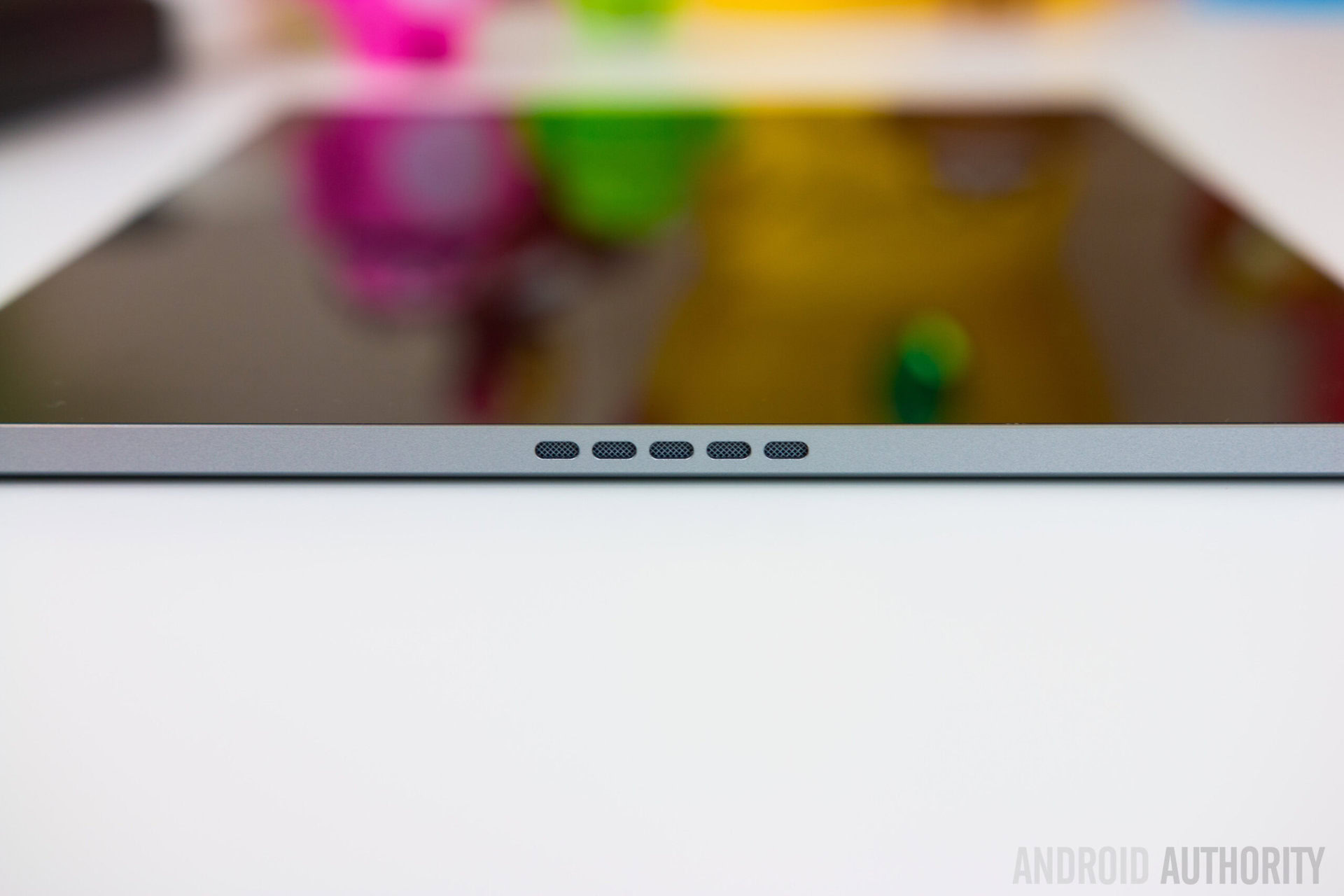
The dual speakers of the Pixel C may not be front-facing, but still sound amazing. They get incredibly loud and the audio is crisp and clean, which means that you will rarely find yourself needing to reach for your headphones. It really makes for a far better media-consumption and gaming experience on a tablet when the speakers are this good, and they are also positioned well enough that you won’t end up muffling the sound when holding up the device.
On the battery front, the battery life of the Pixel C has proven to be pretty good, with the device able to comfortably make it through a full day of use with heavy usage, that involved a lot of watching videos and playing games. With heavy usage, the device lasted for around 12 to 15 hours, with around 5.5 hours of screen-on time, and with more standard use, you should be able to push the tablet for a few days without needing to recharge.
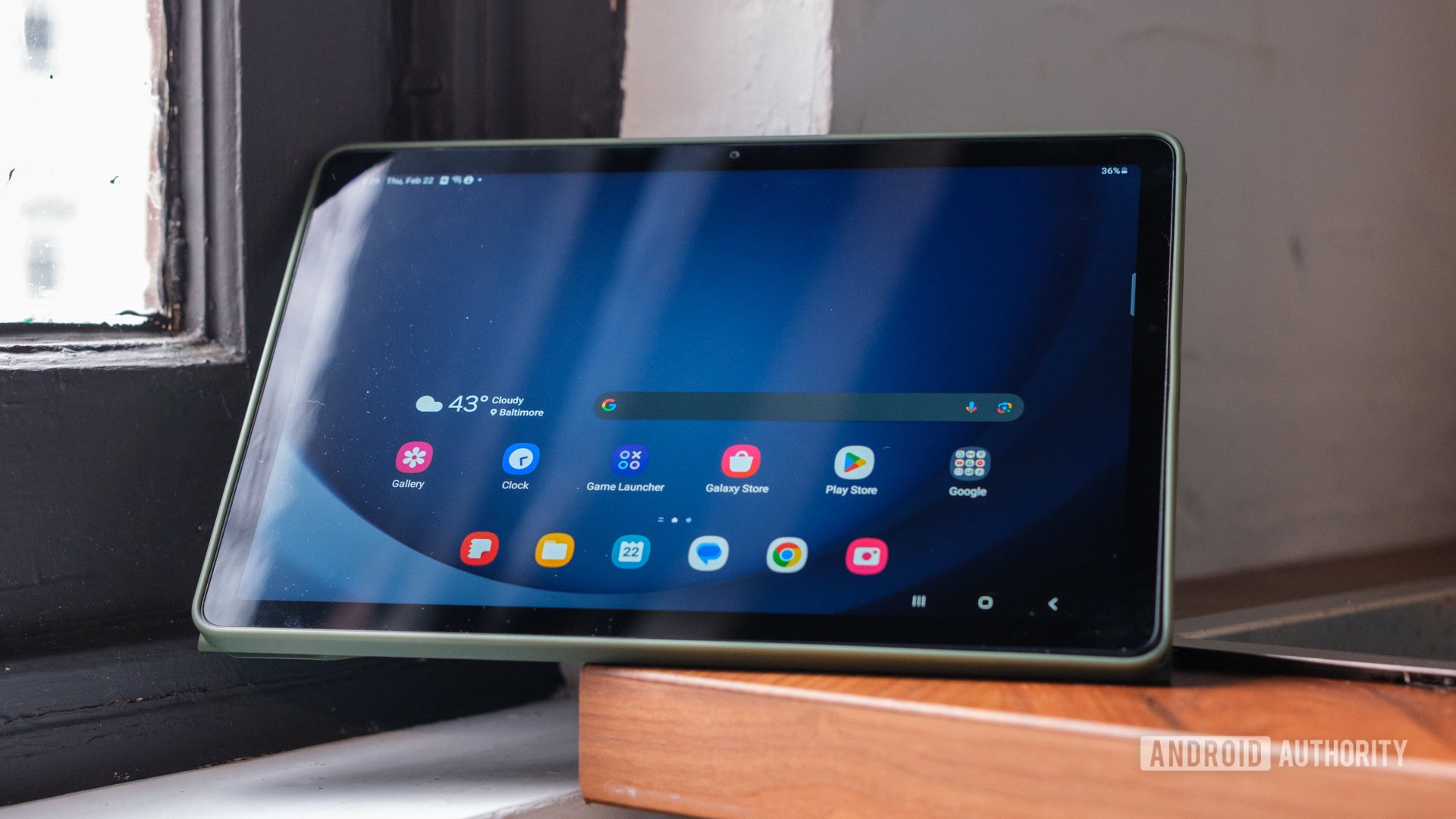
Camera
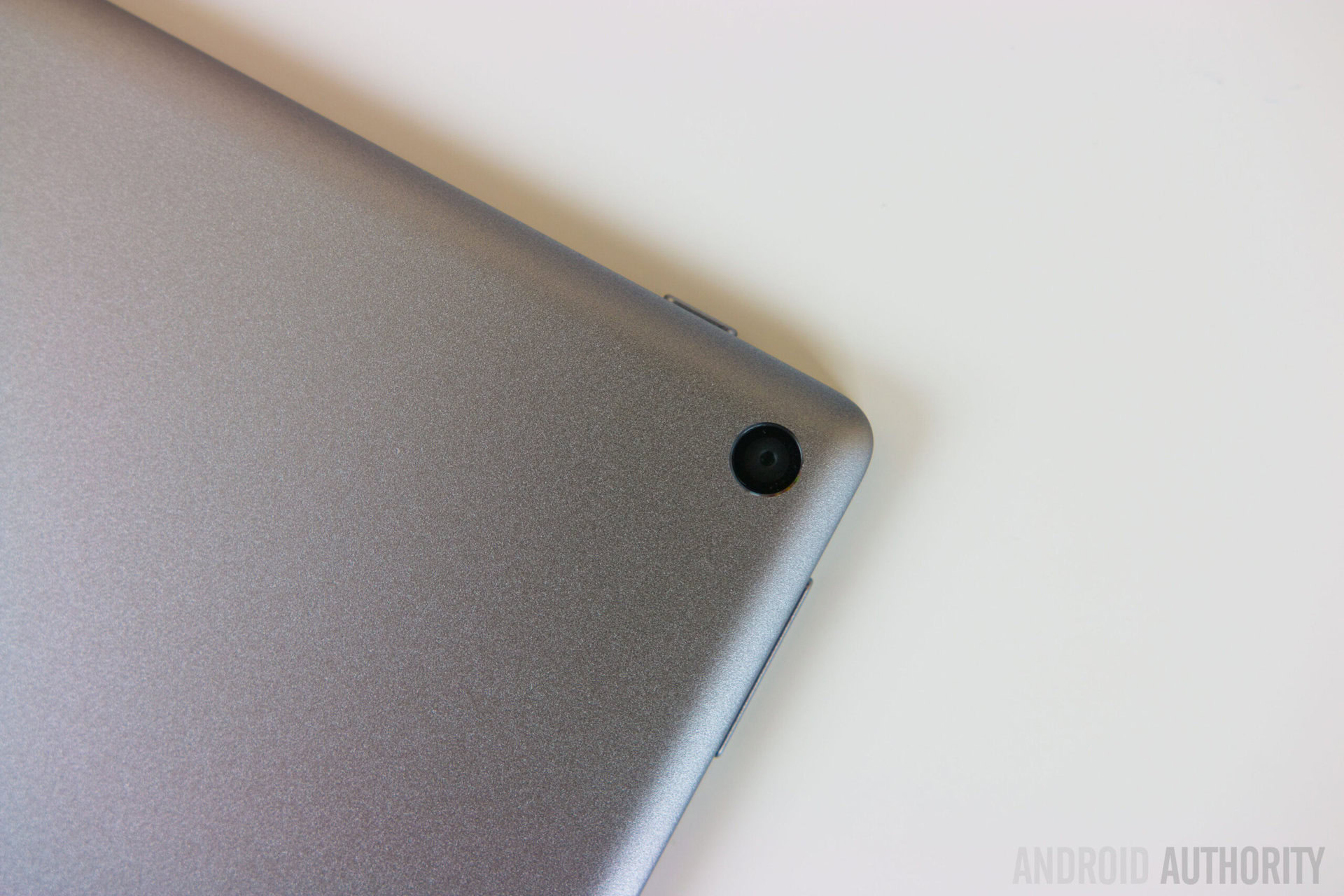
The camera has never been one of the highlighted aspects of the tablet experience, and the 8 MP rear camera and 2.1 MP front-facing unit of the Pixel C aren’t going to change that notion any time soon. The primary camera does a good job in daylight and well-lit situations, but as expected, the quality deteriorates quite quickly as lighting conditions worsen, with shots in low-light having a lot of noise and very little detail. The front-facing camera is serviceable for the occasional tablet selfie and video calls.
As far as the camera application is concerned, what you get here is the standard Google Camera app, with all of its usual modes, like Lens blur, Panorama, and Photosphere to be found. Taking pictures with a tablet is still an awkward experience in public, and while you will likely not be taking a lot of photos with it, the camera will do in a pinch.
Software
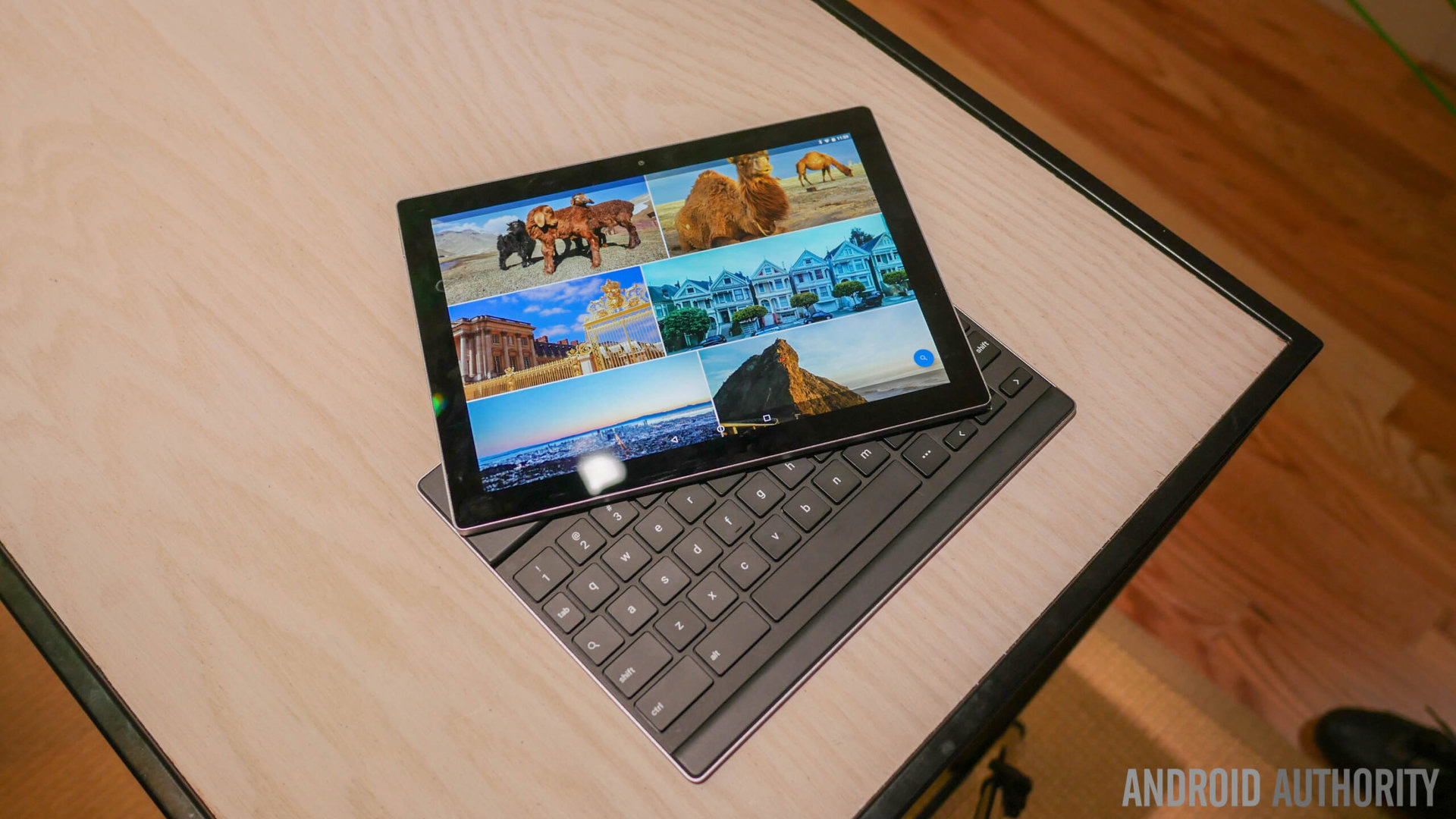
The Pixel C is being marketed a device that is intended for both work and play, and that is where the software experience comes in. The device is running Android 6.0 Marshmallow out of the box, and that means you get access to all the latest features, such as Doze, user defined App Permissions, and Google Now on Tap. The experience is as pure as it gets, but there are a few minor differences to be seen that aren’t available with the Nexus devices.
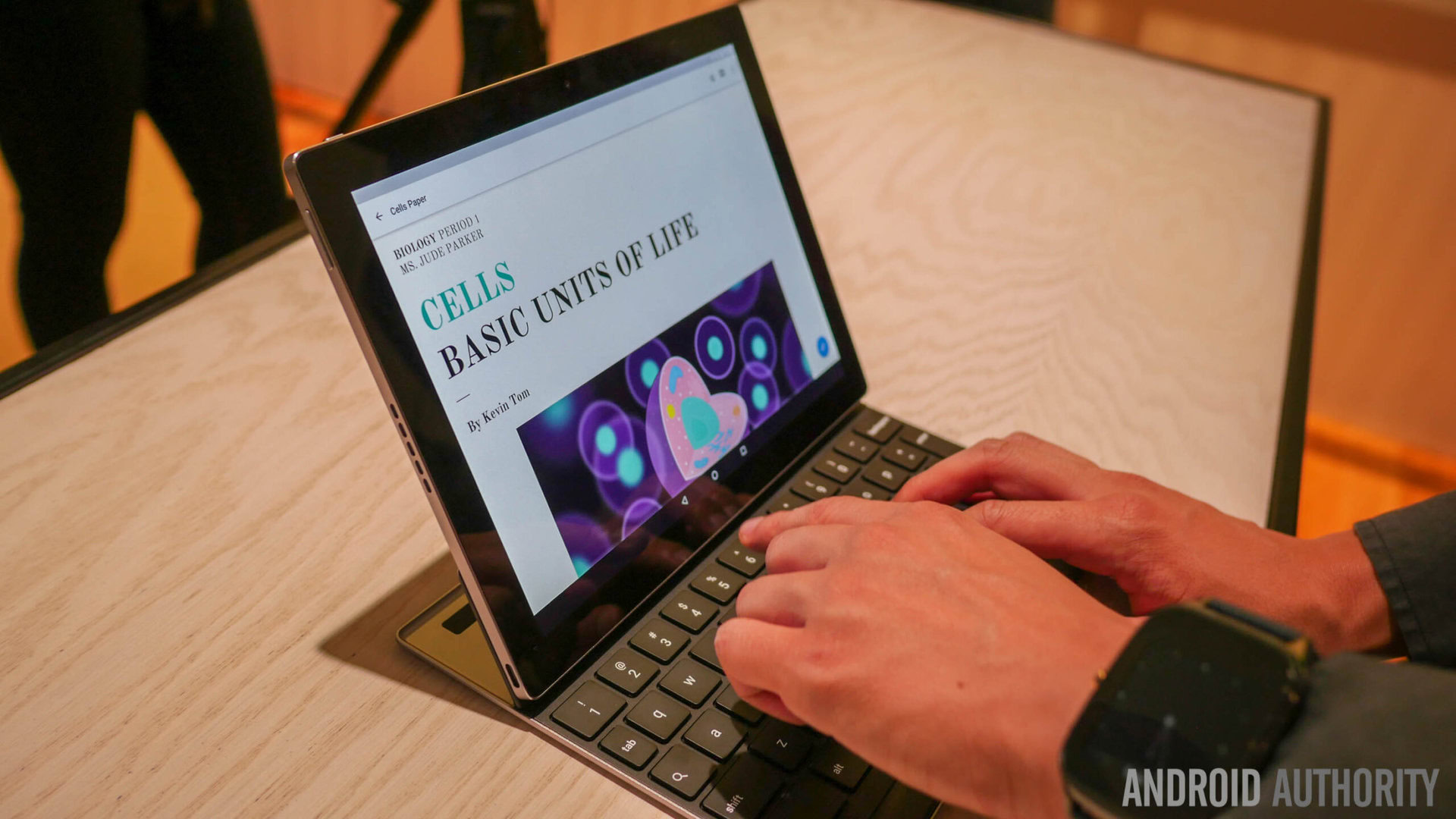
To start with, the placement of the notification drop down is contingent on where you swipe down on the display. The on-screen navigation keys have been split to the bottom left and right corners of the screen, which was most likely done to help prevent having to reach over the top of the keyboard to reach them. Other than that, this is the same stock Android experience that you may be familiar with from Nexus devices.
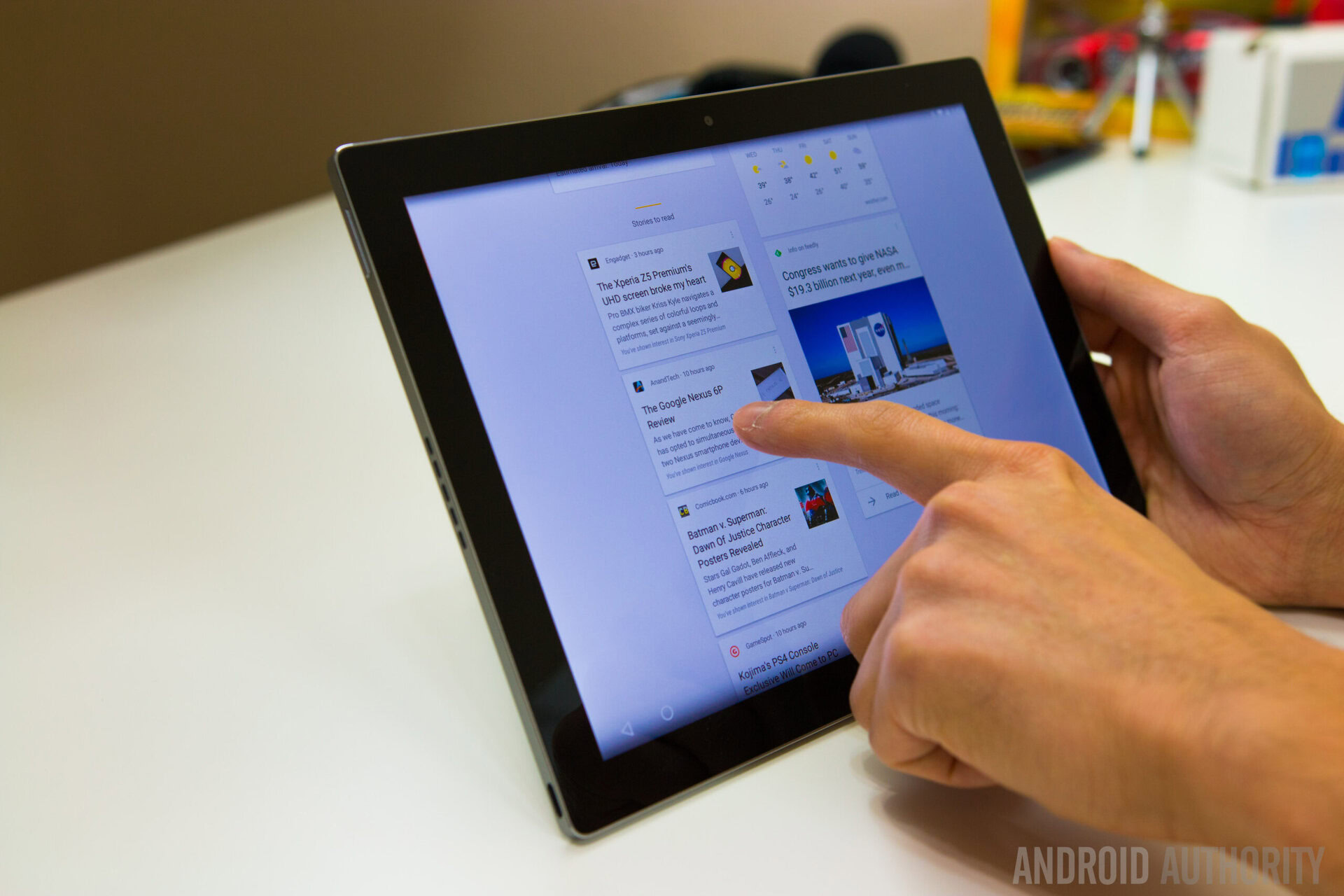
It is definitely possible to be productive on the Android operating system, and the availability of the keyboard means that it is very easy to write up emails, word documents, or create spreadsheets. However, without split-screen multi-tasking, it is quite difficult to do two things at once. Jumping back and forth between applications can start to feel very cumbersome when you’re trying to work on multiple projects at once, with the only multi-tasking option available being via the Recent Apps screen.
The biggest problem that Android still faces is that a lot of third-party applications aren’t optimized for tablet use. Many apps, like Instagram or Snapchat, are just blown up versions of the smartphone app, and those that don’t support landscape orientation can be quite awkward to use when you have the Pixel C paired with the keyboard. Android is a great OS as a whole, and Android 6.0 Marshmallow is its best version yet, but it unfortunately still has a long way to go before it can be considered an OS meant for hardcore productivity.
Specifications
| Google Pixel C | |
|---|---|
Display | 10.2-inch LTPS LCD display 2560 x 1800, 308ppi 500 nits √2 aspect ratio |
Processor | NVIDIA Tegra X1 64-bit processor |
GPU | 256-core Maxwell GPU |
RAM | 3GB, LPDDR4 |
Storage | 32/64GB, non-expandable |
Battery | 34.2 WHr |
Wireless | Wi-Fi 802.11 a/b/g/n/ac 2x2 MIMO, dual-band (2.4GHz, 5.0 GHz) Bluetooth 4.1 + HS |
Audio | Stereo Speakers Quad microphones |
Software | Android 6.0 Marshmallow |
Cameras | 8MP rear camera 2MP front camera |
Ports and connectors | USB Type-C, 3.5mm audio |
Sensors | Gyroscope Accelerometer Ambient Light Sensor Proximity Sensor Compass Hall Effect Sensor |
Materials | Anodized Aluminum |
Size and weight | 242 x 179 x 7mm, 0.517kg |
Gallery
Pricing and final thoughts
The Pixel C is priced starting at $499 for the 32 GB version, requiring an additional $100 to double the storage. The keyboard will also set you back an additional $150, which means that the overall package can be quite expensive, but depending on how much you value the Pixel hardware, you might find it worth the cost.
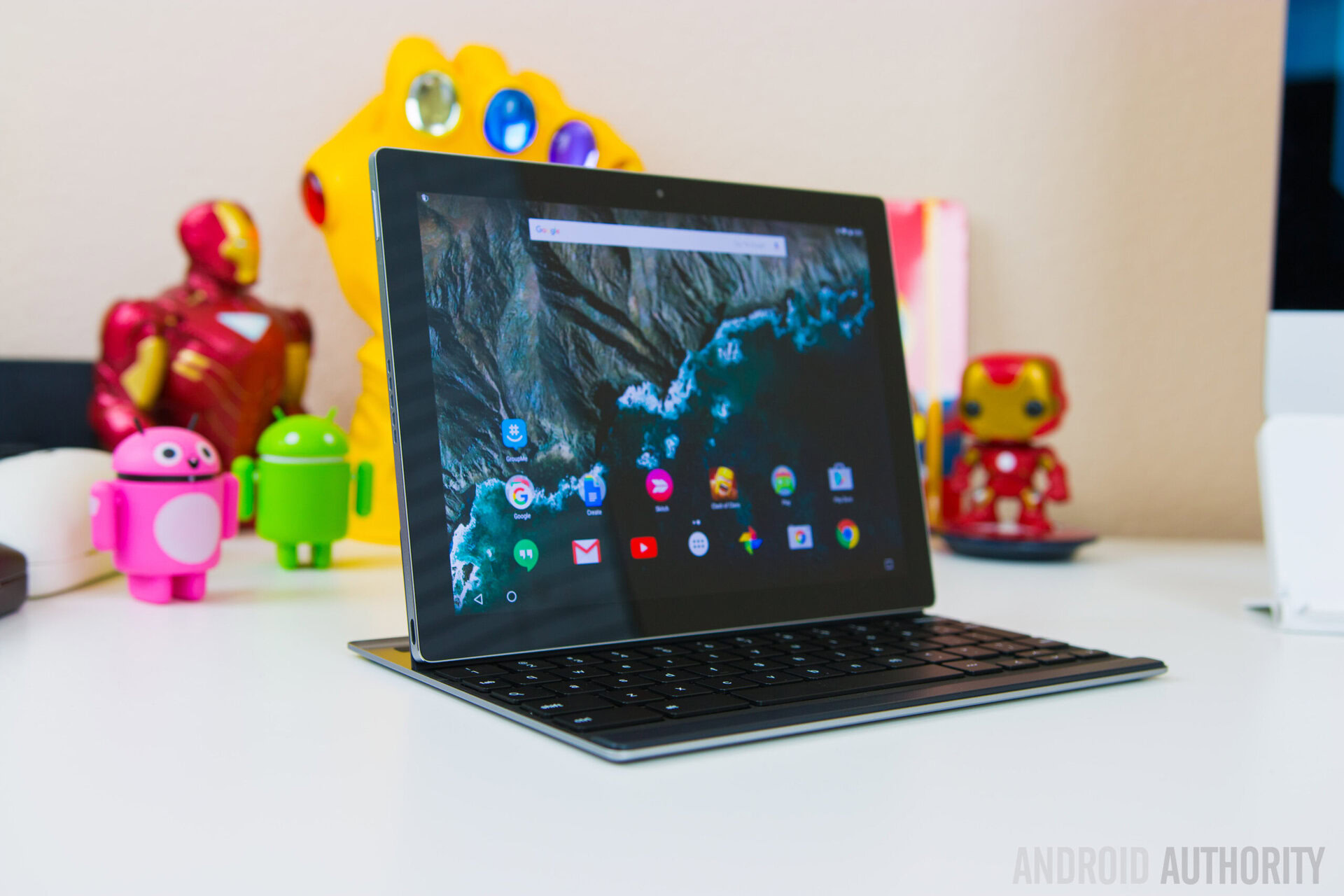
There is no denying that the Pixel C is a fantastic device. Apart from being one of the most beautifully-designed and well-built tablets currently available, the Pixel C is a lot of fun to use when it comes to media-consumption and gaming. That said, the fact that it’s running Android, instead of something like Chrome OS, means that it isn’t ideal with regards to productivity; in this respect, the Pixel C doesn’t offer any more functionality than what you can get with any other Android tablet with a Bluetooth keyboard.
You will be able to deal with emails and write word documents easily, but multi-tasking is an issue, and more complex tasks, like advanced video editing, aren’t possible yet. Rumors of Android N featuring split-screen multi-tasking may help the Pixel C be the productivity machine it’s touted to be, but for now, it isn’t quite there yet.